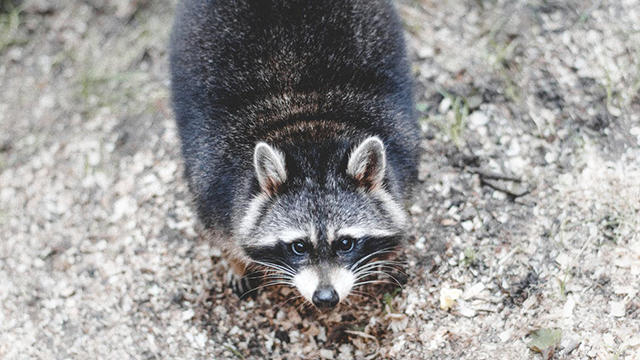Rabies Vaccine Baits To Be Dropped in Burlington and Oakville
Published July 27, 2017 at 1:35 am

Rabies vaccine baits are being dropped in north Burlington starting today by the Ministry of Natural Resources and Forestry (MNRF) to prevent the disease from spreading through fox and raccoon popu
Rabies vaccine baits are being dropped in north Burlington starting today by the Ministry of Natural Resources and Forestry (MNRF) to prevent the disease from spreading through fox and raccoon populations.
Raccoon strain rabies were reported in three raccoons and one skunk found in Burlington on July 6.
Halton’s health department has received positive reports for 11 raccoons and seven skunks and is reminding residents to avoid all contact with raccoons, skunks and other wild animals.
Several cases were found in the Hamilton area in 2015.
The MNRF is also is distributing oral rabies vaccine bait in Oakville – along with other parts of southern and eastern Ontario – in an effort to prevent the disease from spreading through the raccoon and fox populations. The program will begin mid-July and continue until the end of October.
There have been no confirmed cases of rabies in Oakville this year.
The khaki-green coloured, loonie-sized bait being distributed in parks and woodlands around Oakville is made of wax-fat with an attractant flavour (vanilla-sugar) and read “DO NOT EAT.”
A plastic package containing the liquid rabies vaccine is embedded in the centre. When an animal such as a raccoon or fox bites into the bait, it punctures an inner plastic container and releases the vaccine, which gets absorbed into its mouth. A label with the MNRF’s toll-free telephone number (1-888-574-6656) and “Do not eat” are located on the exterior of the bait package.
A small camera is sometimes set up near the bait to track the effectiveness of the program.
If found, the bait should not be touched, but left for raccoons and foxes to consume.
Though the bait is not harmful to pets or people, dogs may experience an upset stomach or allergic reaction from the vaccines. Pet owners should contact their veterinarian as a precaution if ingestion is suspected. No cases of this have been reported to the ministry so far.
For more information, check out Ontario.ca/rabies or contact MNRF’s rabies information line at 1-888-574-6656.
insauga's Editorial Standards and Policies advertising





